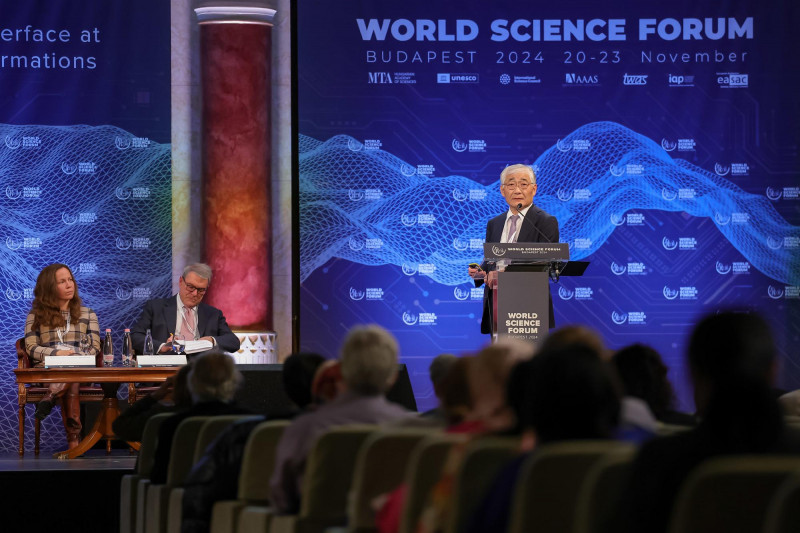Global Experts Highlight Urgent Need for Action on Climate Change and Health on the Second Day of World Science Forum
Leading experts convened to address the profound and interconnected impacts of climate change on human health and future generations during the afternoon hours of the second day of the World Science Forum on 21 November.
The discussion panel, which included Montira Pongsiri, Lead Advisor for Climate Change and Health at Save the Children, Claudia Canales Holzeis, Chief Executive at the Kirkhouse Trust, Dr Anthony Clayton, Professor of Caribbean Sustainable Development, University of the West Indies, and Dr Shouro Dasgupta, Environmental Economist, Centro Euro-Mediterraneo sui Cambiamenti Climatici (CMCC), shared innovative solutions and called for stronger policy changes to build climate resilience.
The Impact on Future Generations
Montira Pongrisi emphasised that environmental transformations—including rising air pollution, extreme heat and flooding—are endangering children’s futures. She outlined initiatives by Save the Children to empower youth with education and advocacy tools to shape climate policy and decision-making.
Agricultural Innovation for Climate Resilience
Claudia Canales shared how legume cultivation projects in Africa are improving soil quality and reducing farming risks, providing a practical approach to combating food insecurity and mitigating climate change’s impact on agriculture.
Urban and Economic Challenges
Anthony Clayton highlighted four major global challenges: resource efficiency, aging populations in mega-cities, the urgent need for sustainable urban solutions, and the role of low-carbon energy systems. He warned against political corruption and outdated attitudes that hinder progress. Meanwhile, Dr Shouro Dasgupta presented research on heat stress and its toll on labour productivity, advocating for investment in low-exposure industries to ensure economic resilience.
Overcoming Barriers to Policy Change
Panellists identified critical obstacles, including insufficient inclusivity, underfunded research and systemic corruption. There was a unanimous call to adapt best practices to local contexts and foster greater collaboration across sectors to overcome these challenges.
A Call for Action
The session concluded with a resounding message of hope and collaboration. Claudia Canales underscored the urgency of working together, stating, ‟Now is the time to work together for the betterment of humanity.”
Plenary Session II: Weighing Risk in Policymaking
In a subsequent session on risk assessment on the same afternoon of 21 November, experts examined the challenges of integrating scientific evidence into decision-making in the face of geopolitical tensions and environmental crises. Margaret Hamburg, Co-President of the InterAcademy Partnersip (IAP), emphasised the importance of science-grounded decisions that reflect national and cultural values, drawing on her experience with the U.S. Food and Drug Administration.
Interdisciplinary Approaches to Global Challenges

Toshio Koike, Executive Director of the International Centre for Water Hazard and Risk Management at the Public Works Research Institute, stressed the need to bridge the gap between science and society through the building of water resilience during this time of climate change, while Narinder K. Mehra, Vice President (international), Indian National Science Academy, raised alarms about the twin crises of antimicrobial resistance (AMR) and air pollution, predicting AMR-related deaths could reach nearly 2 million annually by 2050.
The discussion also explored the evolving risks of artificial intelligence. Eörs Szathmáry, Research Professor at the HUN-REN Centre for Ecological Research, warned about the existential threat AI poses, advocating for strict oversight, while Marina Rantanen-Modéer, Head of Autonomy and GNC (Guidance, Navigation and Control) at Saab Underwater Systems, emphasised leveraging AI for forecasting and investment decisions.
A Unified Call for Global Collaboration
Both sessions underscored the urgency of interdisciplinary solutions, proactive governance, and inclusive global collaboration to tackle climate change and health risks. The event’s overarching message was clear: a resilient, science-informed future depends on bold and collective action today.